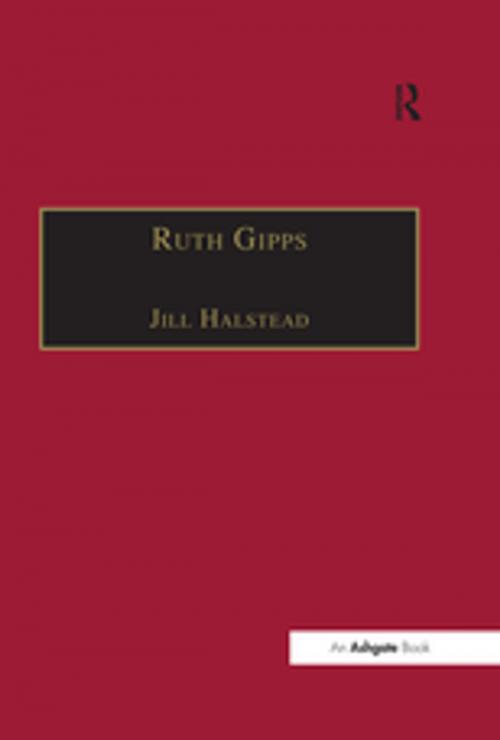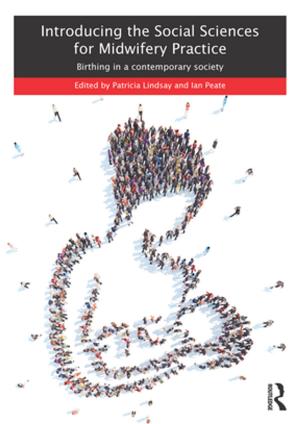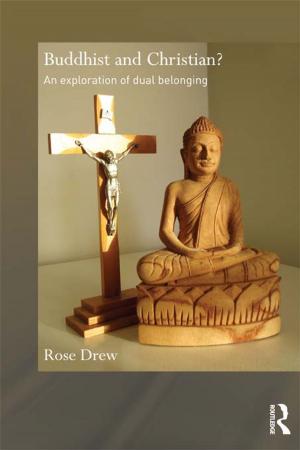Ruth Gipps
Anti-Modernism, Nationalism and Difference in English Music
Nonfiction, Entertainment, Music| Author: | Jill Halstead | ISBN: | 9781351550321 |
| Publisher: | Taylor and Francis | Publication: | July 5, 2017 |
| Imprint: | Routledge | Language: | English |
| Author: | Jill Halstead |
| ISBN: | 9781351550321 |
| Publisher: | Taylor and Francis |
| Publication: | July 5, 2017 |
| Imprint: | Routledge |
| Language: | English |
When Ruth Gipps died in 1999, her legacy was as one of Britain's most prolific female composers. Her creative output spanned some seventy years and includes symphonies, tone poems, concertos, string quartets and various large-scale choral and chamber works. Not content with her creative activities, her boundless energy fuelled her other roles as conductor, concert pianist, orchestral musician and pedagogue. Her many talents were acknowledged but not always respected and she was a figure often dogged by controversy. She gained a reputation for being uncompromising both personally and musically, a reputation that was ultimately to leave her isolated. In the first major review of her life and work the importance of Ruth Gipps is established in two ways: first, as a pioneering woman composer and conductor whose work challenged prevailing attitudes in the era directly after the war and second, as a composer whose musical philosophy was often at odds with mainstream thinking. Although she was branded a reactionary, her position reveals a number of important counter currents in English musical life in the twentieth century. The first section of the book documents her formative years, her life as child prodigy, the disruption and opportunities offered by war, the dramatic end of her career as a concert pianist and her subsequent entry into the world of conducting. The influence of key figures such as Vaughan Williams, Arthur Bliss, Malcolm Arnold and George Weldon is explored, as is Gipps's habitually thorny relationship with a range of musical institutions including the BBC and the City of Birmingham Symphony Orchestra. In the second part of the book her compositional output is reviewed. Works are explored via the guiding themes of her creative agenda; namely anti-modernism and Englishness. The book closes with an analysis of a group of works which all have gendered narratives or readings. As Gipps regularly used personal experience as the basis for such musical narr
When Ruth Gipps died in 1999, her legacy was as one of Britain's most prolific female composers. Her creative output spanned some seventy years and includes symphonies, tone poems, concertos, string quartets and various large-scale choral and chamber works. Not content with her creative activities, her boundless energy fuelled her other roles as conductor, concert pianist, orchestral musician and pedagogue. Her many talents were acknowledged but not always respected and she was a figure often dogged by controversy. She gained a reputation for being uncompromising both personally and musically, a reputation that was ultimately to leave her isolated. In the first major review of her life and work the importance of Ruth Gipps is established in two ways: first, as a pioneering woman composer and conductor whose work challenged prevailing attitudes in the era directly after the war and second, as a composer whose musical philosophy was often at odds with mainstream thinking. Although she was branded a reactionary, her position reveals a number of important counter currents in English musical life in the twentieth century. The first section of the book documents her formative years, her life as child prodigy, the disruption and opportunities offered by war, the dramatic end of her career as a concert pianist and her subsequent entry into the world of conducting. The influence of key figures such as Vaughan Williams, Arthur Bliss, Malcolm Arnold and George Weldon is explored, as is Gipps's habitually thorny relationship with a range of musical institutions including the BBC and the City of Birmingham Symphony Orchestra. In the second part of the book her compositional output is reviewed. Works are explored via the guiding themes of her creative agenda; namely anti-modernism and Englishness. The book closes with an analysis of a group of works which all have gendered narratives or readings. As Gipps regularly used personal experience as the basis for such musical narr















